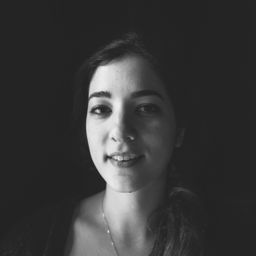Dis-placements: Spatial Stories of Migration III
My Session Status
The cultural landscapes of migration are an inextricable part of Canada’s urban, social and national identity. However, recent debates about immigration, diversity, multiculturalism and the visibility of cultural symbolisms raise controversial, often polarized public opinions. Policies of migration have accentuated divisive interpretations and legitimized isolation among multiple cultural communities, instead of promoting dialogue. This session seeks proposals that investigate spatial stories of dis-placements in order to broaden our understanding of migrant spaces and to inscribe cultural movements into the collective narratives of Canadian culture. We are interested in hearing narratives about places, peoples and practices that critically analyze discourses around migrations in relation to the Canadian built environment. Migrations are expressed in places: spaces of inhabitation, institutions of integration and education, architectures of surveillance, spaces of resistance, commercial enterprises, community centres and spaces of national/cultural representations. Migrant spaces can be read from the perspectives of peoples: communities, families, individuals, professionals, organizations, architects, planners, policy makers, residents, citizens, refugees, immigrants, or people with no legal status; and their practices: spatial appropriations, manifestations, solidarities, manipulations, exclusions, integrations, transfers, pedagogies or isolations.
How can we revise narratives of the Canadian built environment to include critical perspectives of migration? How are migrant places, peoples and practices integral to visibility (or lack thereof), accessibility (or lack thereof), separation, discrimination, or integration? How is hostility or hospitality embedded in spatial compositions? How is spatial agency inherent to migration landscapes? We welcome papers that address intersectionality through historical, theoretical and contemporary issues, lessons or challenges around race, class, ethnicity, gender, sexuality, age, legal status, and disability. Submissions from scholars and independent researchers using interdisciplinary, ethnographic, feminist, participatory research methods, methods of vernacular architecture and cultural landscapes are encouraged.
Sub Sessions
I discuss a narrative “zine”, Home Smart Home, which I created in 2021 as a commission for UKAI Projects and the Goethe-Institut Toronto as part of the Goethe-Institut’s Algorithmic Culture project. The zine consists of a series of observations sited within my family’s suburban home in Scarborough, Ontario, in a neighbourhood made up primarily of first- and second-generation South Asian and Southeast Asian immigrants. The goal of the commissioning institution was to seek what Neta B...
Architecture has the agency to either perpetuate social exclusion or initiate a social change that can offset the continuing forms of hostile architecture in Canadian public spaces. Designing public spaces must intentionally reflect the needs of the whole community, including marginalized people who are often kept on the periphery of an architect's visualization of a public building. As a person who is a Syrian refugee and formerly held a precarious immigration status as an asylum seeker, ...
Nestled between Johnson Peak, best known as the location of Hope Slide, and Mount Potter, is the former site of the largest Japanese Canadian internment camp – Tashme. Bound by steep and treacherous mountains and days-long treks to anywhere by foot. A single highway - The Crowsnest - cuts through the valley, built by the incarcerated labour. Today, this site is a sleepy leisure retreat ironically named the Sunshine Valley, BC, populated with DIY structures by those who willfully leav...


Discussion